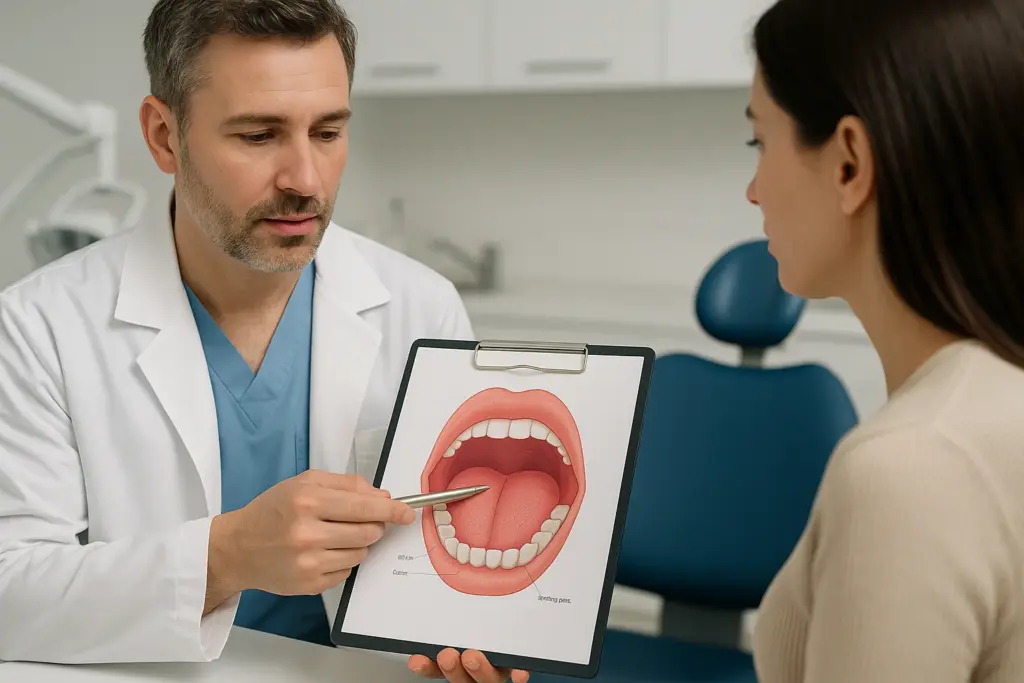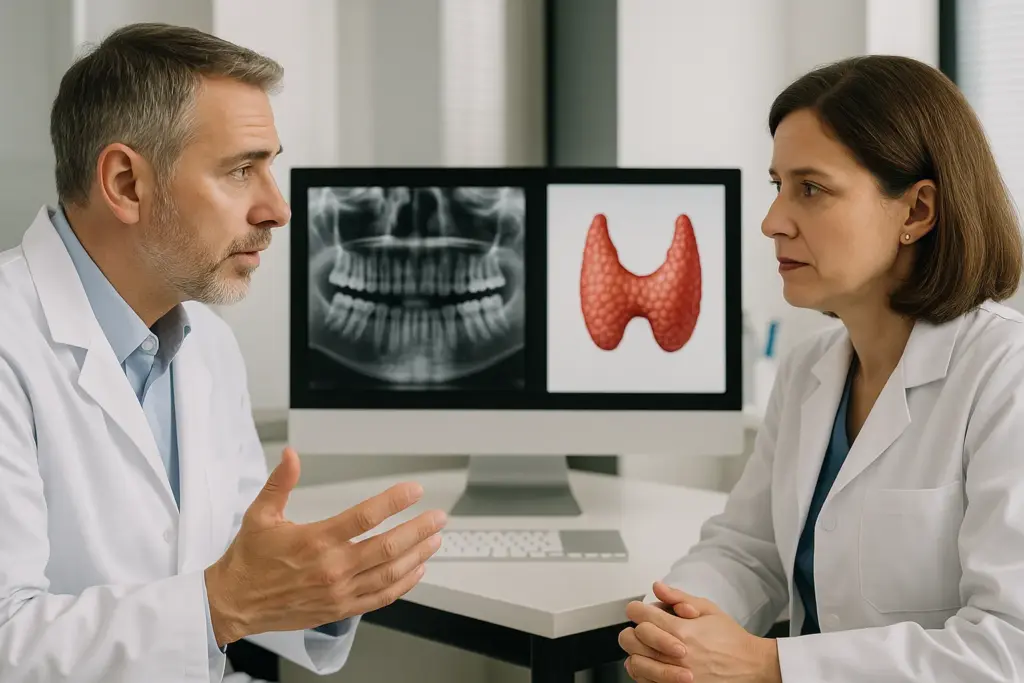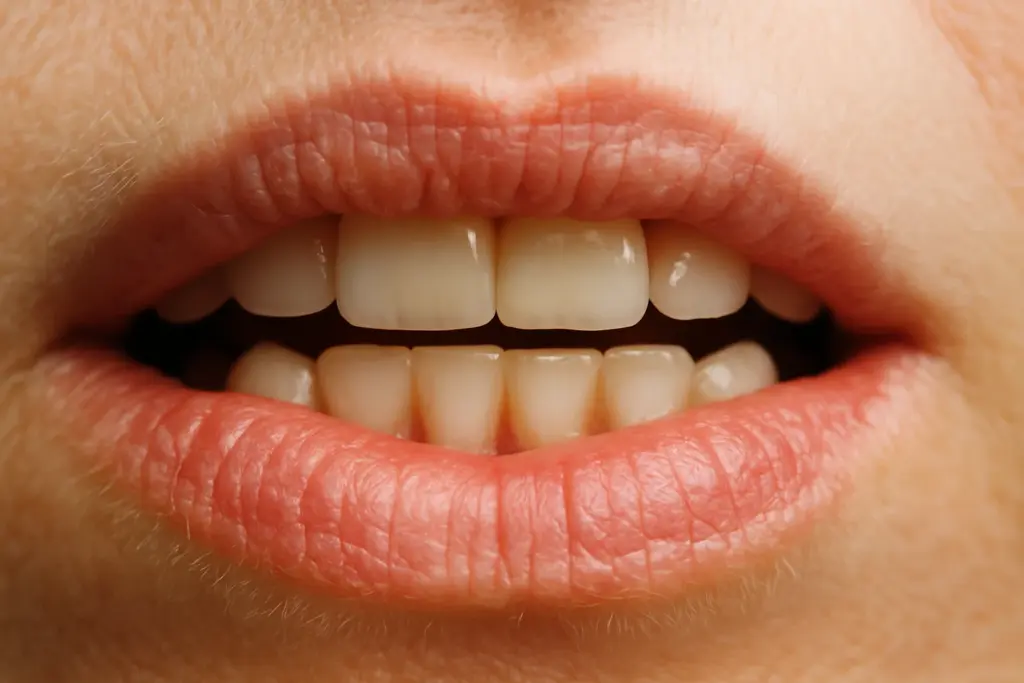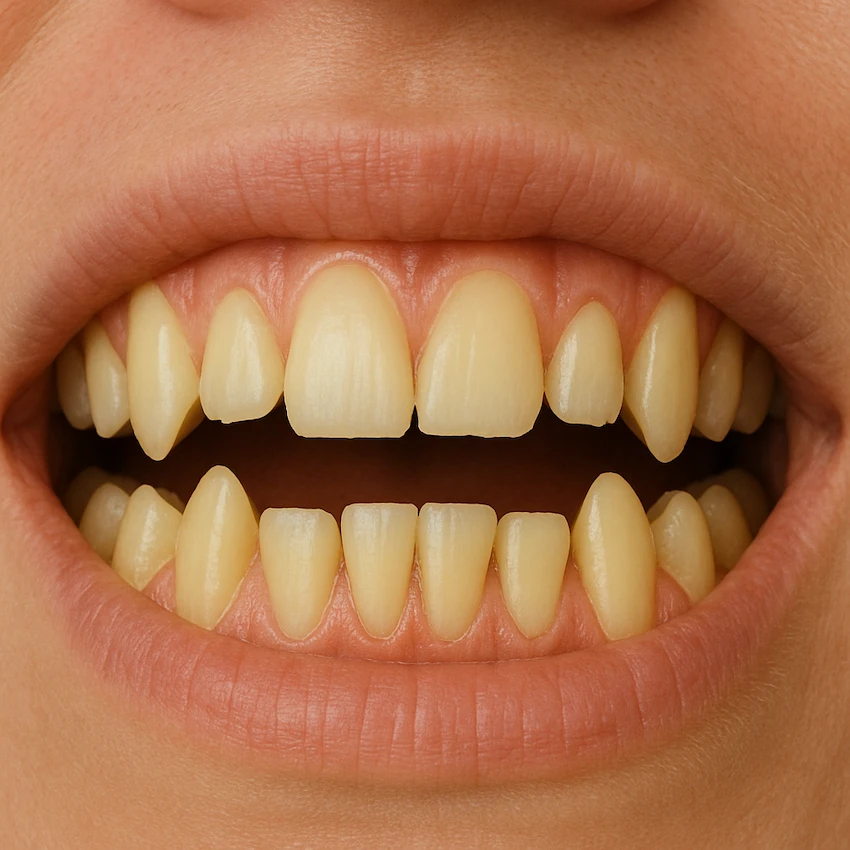Can Thyroid Problems Affect Your Teeth?

Weight variations, lack of energy, and other thyroid problems are the main issues that are always at the forefront of discussions about the condition; however, there is still another side to the story that is invisible in the mouth. Yes, it is your teeth, gums, tongue, and jaw that can be the victims of either an over-energized or an almost done thyroid. The little gland in your neck that affects your smile is something most people are shocked to learn.
Experiencing the thyroid problems’ ups and downs, you would be well aware of their power to lower your confidence, not only internally but also by your smile. Hence, the patients who want to start over with a new smile always head to Lema Dental Clinic in Istanbul, where we are waiting to unveil your Hollywood Smile with the help of our team of specialists experienced in treating patients with multiple medical conditions.
The Link Between Thyroid Function and Oral Health
The thyroid is a butterfly-shaped gland that produces hormones that regulate the metabolism, body temperature, and energy of the individual. However, there is a twist in the story; these very hormones that regulate the metabolism are said to be the main characters in the immune response, bone development, and the overall tissue health, which are the factors that have a major role in oral health.
If the levels of thyroid hormones are not balanced, then the body is affected in such a way that the mouth is included in the distribution of the effects. Among the various changes in the body, the hormonal fluctuation is one that can determine the quantity of the saliva in the mouth (which is a natural defense against the bacterial flora), the condition of the gums in case of the occurrence of plaque, and the speed of the bones and tissues recovery. So, the question is if your thyroid is out of sync, then why your teeth might suffer even if you use your brush and floss.
Ever experienced chronic morning breath, a rise in plaque accumulation, mouth ulcers, or an odd metallic taste? If so, maybe you’ve also questioned why your dentist is probing into your health history in such depth. Well, think of oral care as connected to your overall health, and the thyroid is a major factor in the whole system.
Dental Symptoms of Hypothyroidism and Hyperthyroidism

Imagine the question: what are the changes in your oral cavity when it happens that the thyroid gland is not functioning properly?
Hypothyroidism is a condition in which the thyroid gland fails to produce an adequate amount of hormone. Eventually, everything in the body slows down, including salivary glands, so that there is less moisture and the probability of dry mouth (xerostomia) is higher. Moreover, dry mouth is not simply an annoying symptom of the disorder; it is also a source of danger. The lack of saliva that is washing away food particles and bacteria creates a condition in which dental caries, gingivitis, and chronic infections are likely to occur.
Maybe, additionally, you have picked up on gum swelling, a puffed tongue, hypersensitivity to hot or cold, or just a feeling of uneasiness with the jaw. Also, to eject a tooth or undergo a cleaning can cause you to heal much slower than the normal recovery time.
On the other hand, hyperthyroidism quickens all the processes. Your metabolism is functioning above the limit, and so is the bone turnover. This, in turn, can cause loss of jawbone that leads to a change in the position of teeth, as well as loosening of dental implants or dentures. You might also get gum disease (periodontal) quicker than a normal pace, and your bite might feel strange, the fact that your teeth are moving more than they should.
How Thyroid Issues Can Affect Jaw and Bone Health

This section is a bit technical, but please do not disregard it, as it is really important. The bone in your jaw is the basis for your smile. It holds your teeth, is the part of the mouth where the gums are fixed, and gives shape to your face. If the levels of thyroid hormones are not balanced, your body will stop creating new bones in the correct way (hypothyroidism) or it will decompose the bone that is already there very fast (hyperthyroidism).
This is a really big problem for people who want to have braces, dentures, or dental implants, as all of these procedures are dependent on a strong and stable jawbone. With low bone density, these treatments can be more complex, or sometimes they are not even feasible. For example, the doctor may say you need bone grafting or other support techniques, something that you could have never been advised without early thyroid and dental care.
Besides this, if you have jaw pain, hear popping sounds coming from your jaw (TMJ), or have facial tension that you cannot explain, then your thyroid might be the reason. It would certainly be helpful if you, both the dentist and the endocrinologist, are informed of these signs so that you may have a more effective treatment plan.
Can Children with Thyroid Problems Have Dental Delays?
Yes, and it is a more common phenomenon than people assume. Children who are born with hypothyroidism and those who have thyroid problems that were detected early in life give evidence of delayed tooth eruption, i.e., both primary teeth and permanent teeth come out much later than the normal period. There are even instances in which teeth do not come out at all unless medical help is provided.
On top of that, there is also the chance that they have weak jawbones, and this can later affect teeth and make the child not speak well, or have difficulties during the process of eating. Consequently, this issue can give rise to not only early orthodontic supervision and the requirement of a special diet by a nutritionist to secure normal oral development, but also these assurances to be your points of contact for the solution of the problem.
On the other hand, one of the major issues leading to the disease is enamel hypoplasia – a condition in which the outer surface of the tooth is not properly formed. It not only makes the teeth more vulnerable and more prone to decay, but also more sensitive to temperature. So if your child has thyroid disease and you are a parent, dental check-ups and fluoride treatments are very important in preventing permanent damage in the future.
Managing Dental Health with a Thyroid Condition

Well then, what steps might you take if you were suffering from a thyroid problem and still wanted to keep your teeth healthy? The first thing you absolutely must do is to inform your dentist. Treatment procedures, drug prescriptions, and the decision of whether it is safe for you – all these largely depend on your medical history.
People with thyroid diseases are recommended to maintain oral hygiene of a high standard – brushing twice a day with fluoride toothpaste, flossing daily, and using a mouthwash that will keep the oral bacteria at bay. If you have a dry mouth, you may want to use saliva substitutes, chew sugar-free gum, or take water in small sips to keep yourself hydrated.
Moreover, routine dental cleanings are very important. Those who have thyroid issues may be recommended to have more frequent visits (every 3 to 4 months) in order to maintain the gum that is infected at the lowest level. If you are going to have surgery or dental implants, be sure to have your thyroid levels under control before starting the procedure so that the healing process is successful.
Last but not least, liaise with your endocrinologist as well as your dentist. It’s a combined effort—your hormonal question and dental matter are more closely linked than you think!
FAQ: Can Thyroid Problems Affect Your Teeth?
Dry mouth, gum swelling, delayed tooth eruption, jaw pain, and bone loss are all dental issues linked to thyroid dysfunction.
Yes. Especially in cases of untreated hyperthyroidism or hypothyroidism, bone loss and gum inflammation can accelerate, leading to tooth loss over time.
Some thyroid medications can contribute to dry mouth, while others may interact with dental anesthesia. Always tell your dentist what medications you’re taking.
Definitely. It helps them choose safer, more effective treatments and be aware of potential healing delays or medication interactions.
Maintain excellent hygiene, stay hydrated, visit your dentist regularly, and make sure your thyroid levels are being monitored by a healthcare provider.




